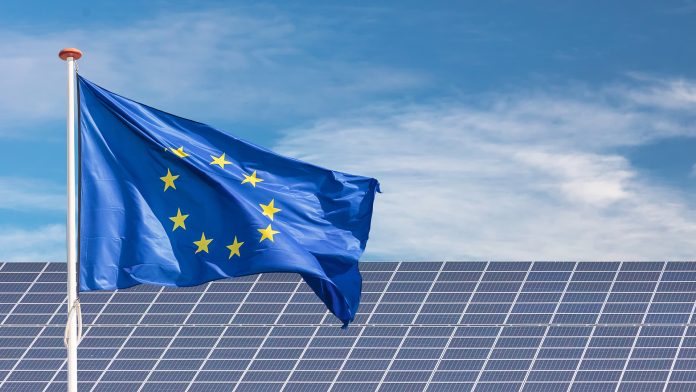In the push towards achieving climate neutrality by 2050 and realising the ambitious objectives of the European Green Deal, municipalities are crucial protagonists in the journey towards a sustainable future.
Mohamed Ridouani, Mayor of Leuven and President of the Energy Cities network, a partner organisation of EUSEW, highlights the pivotal role of municipalities in implementing the European Green Deal and emphasises the need for adequate resources and support.
European Green Deal implementation
In the past five years, the European Union has established the legislative framework to achieve climate neutrality by 2050 and initiate the European Green Deal.
2024 marks the commencement of the implementation phase for the EU’s climate and energy policies, where municipalities are poised to play a significant role.
As Mayor of Leuven, I am proud to say we are among those municipalities leading the way towards achieving those objectives.
Through initiatives like Leuven 2030, the city has rallied its community around the shared goal of climate neutrality, as evidenced by the submission of the Climate City Contract to the European Commission in 2023.
Nevertheless, we should not underestimate the effort and resources needed to make the EU Green Deal a reality.
Challenges at the local level
Almost every Directive or Regulation part of the European Green Deal has elements that concern local authorities.
A new publication by Energy Cities and Eurocities provides a detailed analysis, but, as an example, a lot of effort is going to be needed at the local level regarding mapping, planning, building management, and renovation.

A 2022 study shows that each municipality in the EU would need around 2.5 additional full-time positions only to decarbonise their built environment.
The success of the European Green Deal is also linked to social justice: how can we ensure it is not seen as a luxury but as the number one social policy that will bring long-term benefit for everyone?
That is where municipalities can have a big impact, thanks to their proximity to the citizens and economic actors.
They are best placed to coordinate the local ecosystem, unite everyone as active participants in the transition, and provide support.
This role has been widely recognised in European legislation, but the issue of corresponding financial and human resources remains.
Structural changes needed to empower cities at the EU level
Some solutions have already been put on the table. The EU Social Climate Fund could be an opportunity for cities to finance their investments for a just and equitable transition.
EU legislation, such as the Energy Performance of Building Directive, suggests that Members States provide training for local authorities.
But at Energy Cities, we think that one-off measures are not enough. The upcoming discussions on the EU multiannual budget and the reform of the EU Cohesion Fund will make the perfect occasion to implement structural changes and equip local and regional authorities with the resources they need to make the European Green Deal a reality.
Ridouani underscores the indispensable role of municipalities in driving forward the European Green Deal and calls for concerted efforts to provide the resources and support needed for effective local action.
By empowering municipalities, the EU can ensure a just and equitable transition towards a sustainable future for all.
This article is a contribution from a partner. All rights reserved. Neither the European Commission nor any person acting on behalf of the Commission is responsible for the use that might be made of the information in the article. The opinions expressed are those of the author(s) only and should not be considered as representative of the European Commission’s official position.









